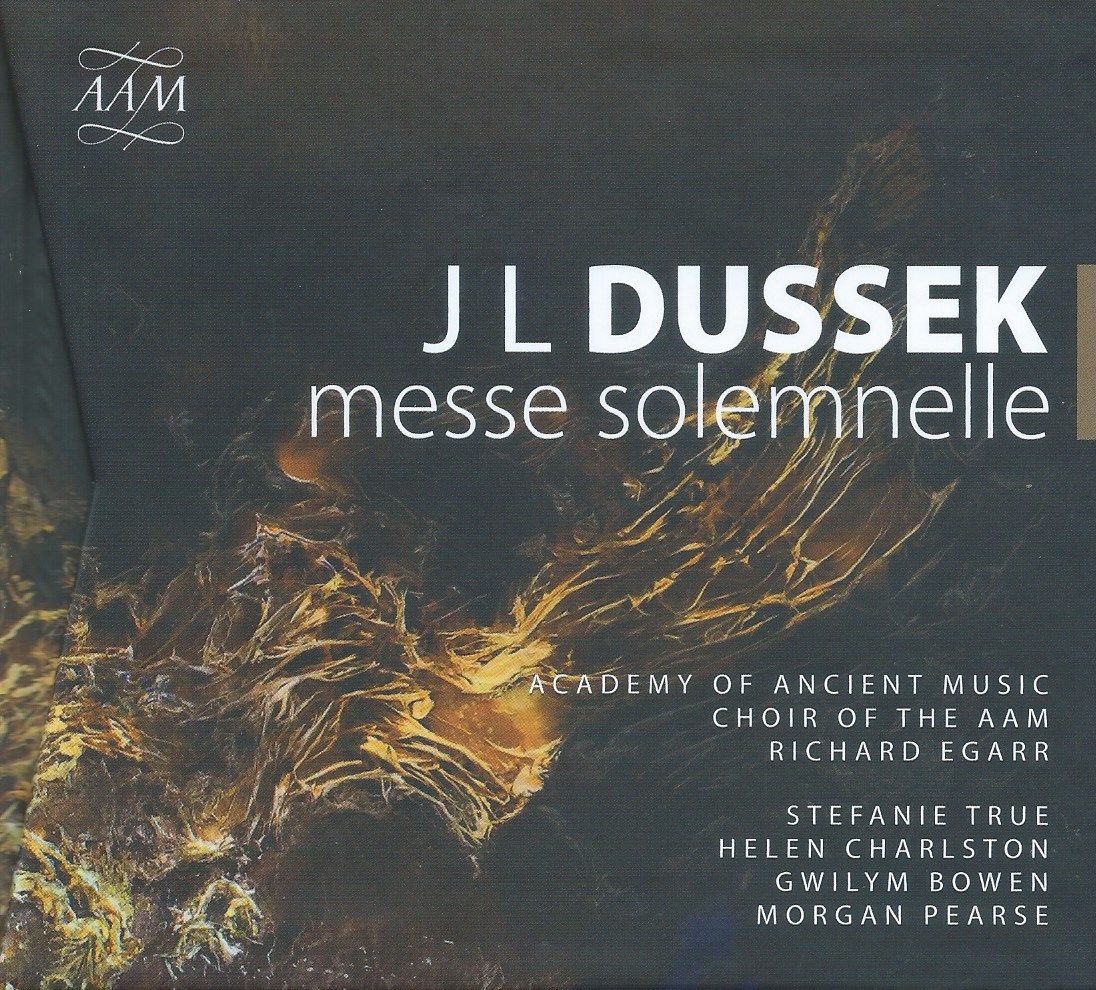Discover Dussek: his Messe solemnelle from the Academy of Ancient Music and Richard Egarr
When superior musical execution meets highest musical scholarship, angels cry with joy

When superior musical execution meets highest musical scholarship, angels cry with joy. OK, perhaps they don't, but there is certainly much to celebrate about this recording of Jan Ladislav Dussek's Messe solemnelle (or Solemnal Mass, as it is translated in the lavish booklet).
This is a premium product, one disc but in a box with not only full text and translations but also a trove of background (including a partial Dussek discography). Born in Časlav, Bohemia, in 1760, Dussek's music belies its years (he was born only four years after Mozart; he died in 1812, three years after Haydn died, and yet his music can be felt to point forwards in time significantly).
Richard Egarr is a fierce proponent of Dussek's music. In October 2019 he led a performance of his Mass in G (1811) at the Barbican (there's a review here); not to mention both performing and conducting Dussek's G minor Piano Concerto in Edinburgh in 2013 (review here). The adventurous nature of Dussek's music is a big part of what fuels Egarr's enthusiasm. The disc was recorded n St Augustine, Kilburn, London at the end of last October.
Almost operatic in outlook, this is vital, bracing music, but also music of great beauty. The contributions of the soloists as a group in the 'Quoniam' is an example of the latter, as it is in the 'Et incarnatus est,' with baritone Morgan Pearse providing a firm foundation; even the contrapuntal choral moments in this movement have a gentleness that takes them far way from the schoolroom. Sometimes the choral writing resembles that of Haydn in his Masses (perhaps most notable in the trumpet-saturated 'Et resurrexit'?), elsewhere Dussek stretches far forward, a case in point the daring paring down of texture in the soprano and tenor duet for the 'Christe'. Lovely to see tenor Gwilym Bowen as tenor soloist, who has impressed many times previously, including in a Purcell Fairy Queen with Egarr and the Academy of Ancient Music (review). Soprano Stefanie True offers the perfect complement to Bowen.
Hearing this on authentic instruments (and at A = 438 Hz) actually adds to the daring textures Dussek employs. The piece is a vital melding of academicism (there's more than one double fugue knocking about) with faith from the heart. Try the emotive orchestral opening to the 'Sanctus,' or the gentle caressings of the soul in the 'Agnus Dei'.
It is wrong to describe the Dussek catalogue as stocked with anything, really, but while there are a fair few recordings of Piano Concertos and Piano Sonatas, this recording stands in splendid isolation when it comes to major choral music.
Hummel and Spohr are two composers who also are ripe for further exploration, although in fairness Hyperion has been doing pretty well for both. Meanwhile, please find below not only links to the Dussek via Spotify (plus Amazon purchase link) but also a highly informative Gramophone podcast that finds Richard Egarr in conversation with James Jolly around this highly laudable project.
